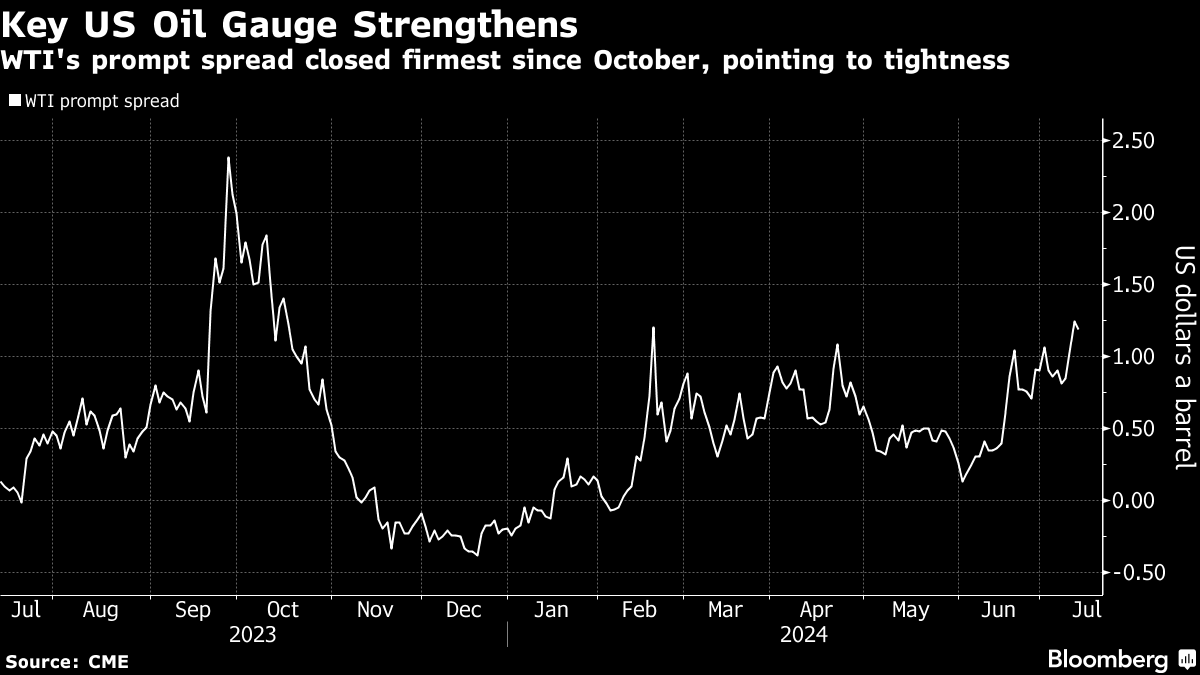Oil Falls as Cease-Fire Progress Outweighs Positive Demand Signs
(Bloomberg) -- Oil fell after progress on a cease-fire between Israel and Hamas outweighed signs of rising US crude demand that had propped up prices earlier in the week.
West Texas Intermediate retreated 0.5% to settle near $82 a barrel. US President Joe Biden said Friday in a social media post that Israel and Hamas have agreed to a cease-fire framework, potentially reducing geopolitical risks to crude supplies. The potential for a wider regional conflict in the Middle East, the source of a third of the world’s oil, had pushed crude prices near $87 earlier this year.
Earlier this week, National Security Adviser Jake Sullivan said negotiators have made progress toward a cease-fire, but tamped down hopes of a deal anytime soon.
“The signs are more positive today than they have been in recent months,” Sullivan said, while adding that “there’s still miles to go before we close — if we are able to close.”

News of the possible cease-fire is counteracting signals of a robust market. On Wednesday, a US government report showed signs of strengthening fuel consumption after the Fourth of July holiday. Meanwhile, the premium for WTI’s front-month futures over the next contract — known as the prompt spread — reached the highest since October, indicating tighter supplies.
“Spreads suggests that refinery appetite, the possible bellwether of seasonal growth in consumption in the Northern Hemisphere, is on the rise,” said Tamas Varga, an analyst at brokerage PVM.
Summer is presenting risks to supply, too. In Canada, a ring of wildfires has erupted around the country’s unofficial oil-sands capital of Fort McMurray, with some production having already been curtailed by a blaze to the northeast.
©2024 Bloomberg L.P.





